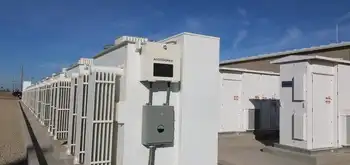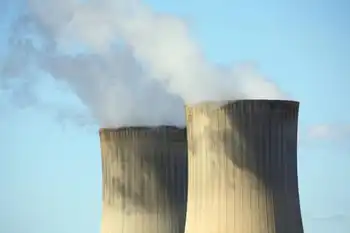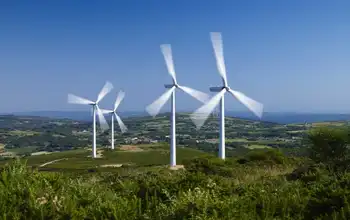Senate Finance Looks at Energy Taxes Amid Dreary Spending Picture
- The Senate Finance Committee wades back into examining the role of tax incentives in energy policy this week amid criticism from senior Democrats that the nearly $35 billion in tax breaks passed by the House this summer may be in jeopardy given the ongoing battle over FY '02 budget numbers and the ailing economy.
Despite the doubts expressed by Senate Majority Leader Tom Daschle (D-S.D.) last week, Senate Finance Chairman Max Baucus (D-Mont.) still sees energy tax breaks as doable this session, a committee aide said Friday, though in a more limited fashion than the scheme approved by the House under H.R. 4.
"We've talked about the $35 billion package, and it would have to be scaled backed somewhat," the aide said, adding that Baucus also favors adding more incentives aimed at renewables and energy efficiency.
Last week, as House Minority Leader Richard Gephardt (D-Mo.) called for an entirely new budget to account for a lower-than-expected surplus, Daschle wondered whether the funds are there to cover H.R. 4's many new tax breaks directed at increasing domestic supply as well as decreasing demand. He cited the Congressional Budget Office's new dreary economic forecast, which indicates Congress has far less room for new spending initiatives than assumed only six months ago.
"None of these [tax incentives] have yet been addressed in terms of how we're going to pay for them," Daschle said. As a result, both Baucus and Sen. Chuck Grassley (R-Iowa.), the committee's ranking member, recently admitted they're looking for offsets to finance energy tax proposals.
The tight spending picture has some tax experts predicting energy may be left out in the cold given more high-profile attempts to boost defense and education spending. "Everyone is perplexed on how they're going to proceed on budget issues," said Joel Friedman, of the Center on Budget and Policy Priorities. "This could make it extremely difficult to proceed on energy tax issues."
Some Democrats, led by Gephardt, are therefore using tax proposals and other new spending measures as fuel to press for a new budget to avoid dipping into the Social Security and Medicare trust funds. (Portions of this story appeared in the 9/6 Environment and Energy Daily.)
Administration officials, meantime, insist the funds are there to cover all of the president's spending priorities for FY '02, including a comprehensive energy bill and other key environmental priorities (such as the Conservation and Reinvestment Act). White House budget director Mitch Daniels told lawmakers last week the president's resolution is right on track and indicated a new economic stimulus package rather than revamped budget figures might be the appropriate legislative reaction.
"It's the economy that's struggling, not the finances of the federal government," said Daniels, who asked lawmakers to limit discretionary spending to the $661.3 billion outlined in the budget request, plus an additional $18.4 billion for defense funds.
Senate Republicans were equally dismissive of the Democratic war of words. Sen. Pete Domenici (R-N.M.), ranking member on the Budget Committee, defended this budget as "good enough to complete our work" for FY '02, and Sen. Ted Stevens (R-Alaska), ranking member on the Appropriations Committee, blasted Gephardt for offering a new scheme just 20 days from the end of the current fiscal year.
"He's just all wet," Stevens said.
Still, by week's end Domenici admitted he is ready to dip into the Social Security surplus to finance new spending initiatives. At a Senate Budget Committee hearing on the economic picture and government spending, Domenici said he sees "no reason in the world" why the surplus funds cannot be tapped to finance new spending. His comments are a radical departure from President Bush's insistence that the administration's FY '02 budget will not dip into so-called "lockbox" funds.
Tax and budget experts expect Congress will ultimately have to come up with revenue offsets to make room for new energy tax breaks, especially if the spending picture appears to tighten further before a comprehensive energy bill hits the Senate floor. As for where those offsets might originate, it's too soon to say, according to sources off and on the Hill.
As for why energy may have to take a backseat on the Senate side, Friedman offered two points: "For one, the crisis atmosphere seems to have abated a bit, and there are other pressing policy issues. On the tax side, short one-year extenders cost a bit of money, and during the appropriations battle everything gets lumped together."
In the House, meantime, Energy and Air Quality Subcommittee Chairman Joe Barton (R-Texas) has said he's puzzled by the criticism of H.R. 4's tax title since most of the credits are extensions of current breaks. The only new credits, he said on the House floor last month, are clean coal gasification improvement and energy efficiency tax breaks -- which are supported by broad sections of Congress, he said.
But many fiscal conservatives, led by the House Democratic Blue Dogs, objected to the nearly $35 billion in breaks over ten years on the grounds that the title signaled a return to deficit spending, presaging the debate this week in the Senate. Said Rep. Jim McDermott (D-Wash.), "None of this is paid for. It's all smoke and mirrors."
The problem, Blue Dogs argued, is the $1.35 trillion tax cut already enacted by Congress means H.R. 4's tax incentives -- granting breaks to energy efficient purchases as well as oil, coal and nuclear industries -- will have to be funded by the Medicare and Social Security trust funds. That line sounds very similar to Daschle's statement last week.
Related News

Utilities see benefits in energy storage, even without mandates
WASHINGTON - The rankings do not tally how much energy storage a utility built or owns, but how much was connected to their system. So while IPL built and owns the storage facility in its territory, Duke does not own the 16 MW of storage that connected to its system in 2016. Similarly, while California’s utilities are permitted to own some energy storage assets, they do not necessarily own all the storage facilities connected to their systems.
Measured by energy (MWh), IPL ranked fourth with 20 MWh, and Duke Energy Ohio ranked eighth with 6.1 MWh.
Ranked by energy storage…




